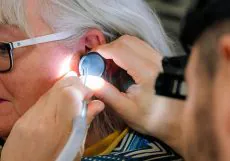What Are the Compulsory Sleep Apnea Tests and Diagnosis?
0 Views

If you have sleep apnea disorder symptoms, sleep apnea doctors will ask you for a sleep apnea test called a polysomnogram(PSG). This may be done with sleep apnea disorder or at your home.
A polysomnogram or sleep study
It’s a multiple-component test that electronically needs signals and records them specifically when you do some physical activity.
The recording was made and analyzed by a specialist to determine if you have apnea or another type of sleeping disorder. If sleep apnea dentists near me find you are suffering from sleep apnea or you may need more sleep time to study.
What should you Expect During a Sleep Study?
First, your dentist will ask you to stop any medication or drugs you take before the test. Also, avoiding caffeine or alcohol intake during the test would be best because they can interfere with the results.
On the night when your doctor will study your sleep, sleep apnea doctor Houston will assign a private bedroom in the hospital. Near the bedroom will be created a monitoring area, where the technician will monitor patients sleeping.
They’ll hook the equipment to your body, which may look uncomfortable. But most people fall asleep with a bit of trouble. Similarly, more portable equipment is available for at-home testing, especially for mild cases or situations.
What is the Equipment Frequently Used for a Sleep Study?
During the sleep study, the surface electrode will be added to your face and scalp. It will send the recorded electrical signals to measure. These signals are generated by your brain and muscle activity that is digitally recorded. Belts around your chest and abdomen take measurements of oxygen or breathing. A bandage-like oximeter probes your finger to measure the oxygen in your blood. Therefore you should consider visiting the dentist who will recommend sleep apnea devices.
Other tests for sleep apnea disorder
- Electroencephalogram(EEG) measures and records your brain’s waves and activity.
- An electromyogram (EMG) records muscle activity such as face twitches, grinding, and leg movement. During REM sleep, intense dreams often happen as the brain has heightened activity.
- EKG(electrocardiogram) to record your heart rate and rhythm
- Nasal airflow sense to record your airflow
- They also place a microphone to see any snoring problem.
After a Sleep Study
In the morning, the technicians take off the sensor attached to your skin, and you can return to your activities.
It takes a sleep specialist some time to analyze your problem and read your data pages. Then they’ll send the results to your doctor. Once the doctor reviews them, you’ll discuss the findings and take the following steps.
What may be the Sleep Study Results?
The study includes information about your sleep, such as:
- How long do you spend in each stage of sleep?
- How long do you take to sleep?
- How often do you wake up or pee?
- Whether you stop breathing or have a problem during breathing
- Whether you snore or how much sound you create during sleep
- Body posture during sleep
- Limb movements
- Unusual brain activity
Conclusion
Suppose you are suffering from any signs of sleep apnea. In that case, you should consider visiting a sleep apnea doctor who will recommend a complete sleep study.
Related Posts

What Are the Benefits of Visiting an Ear Suction Clinic for Ear Wax Microsuction?
Andrin Andrin / January 10, 2025








